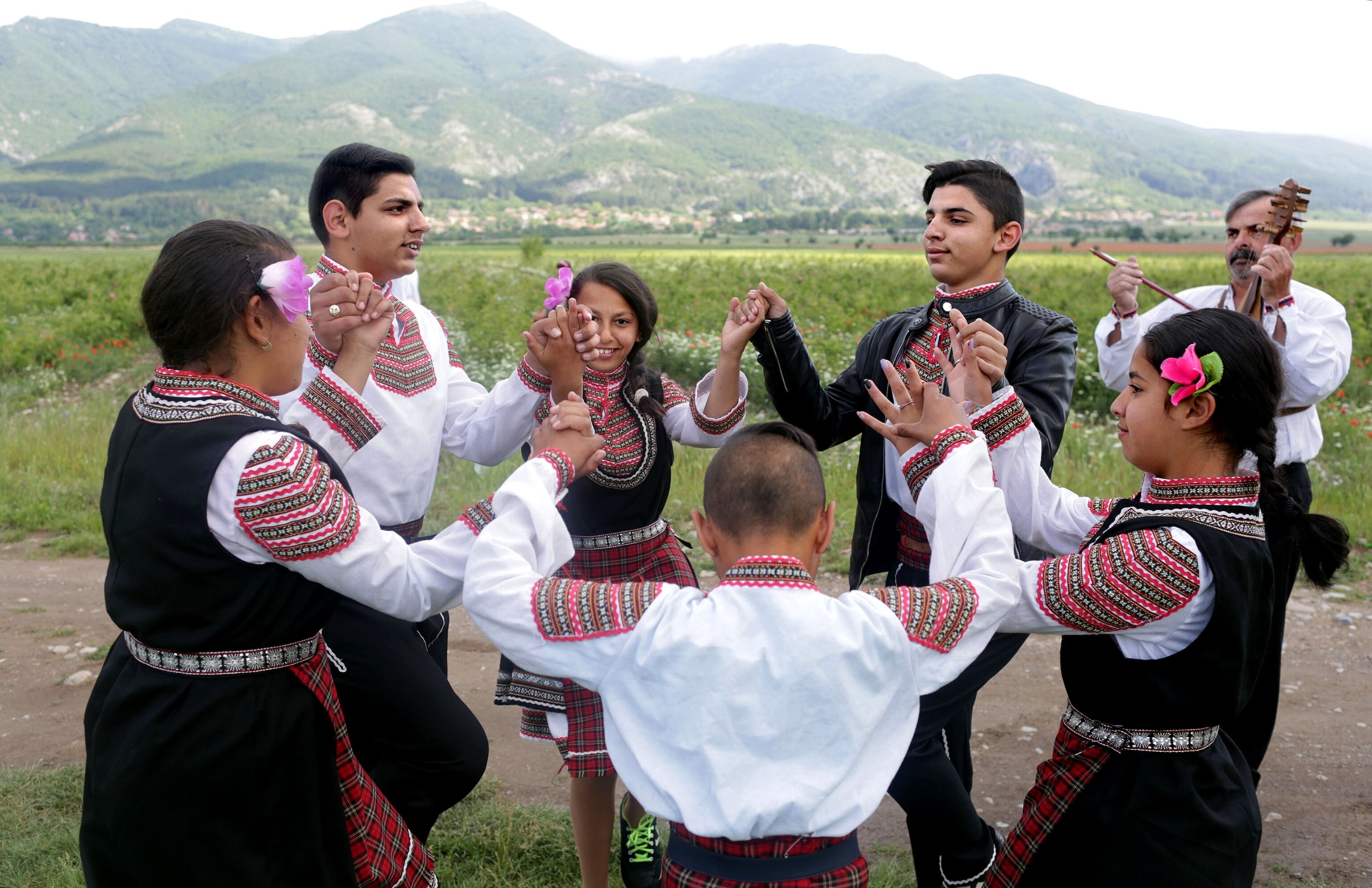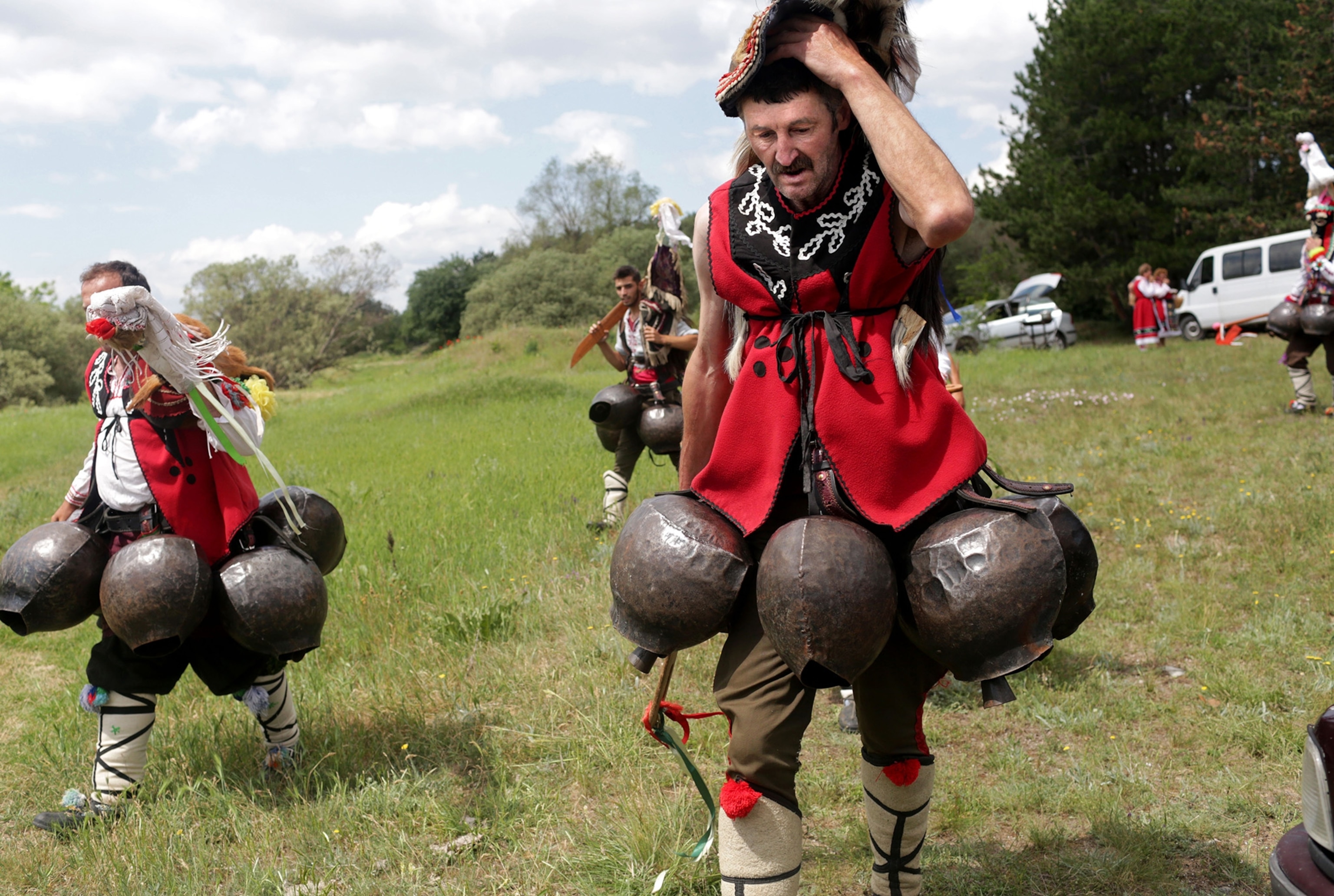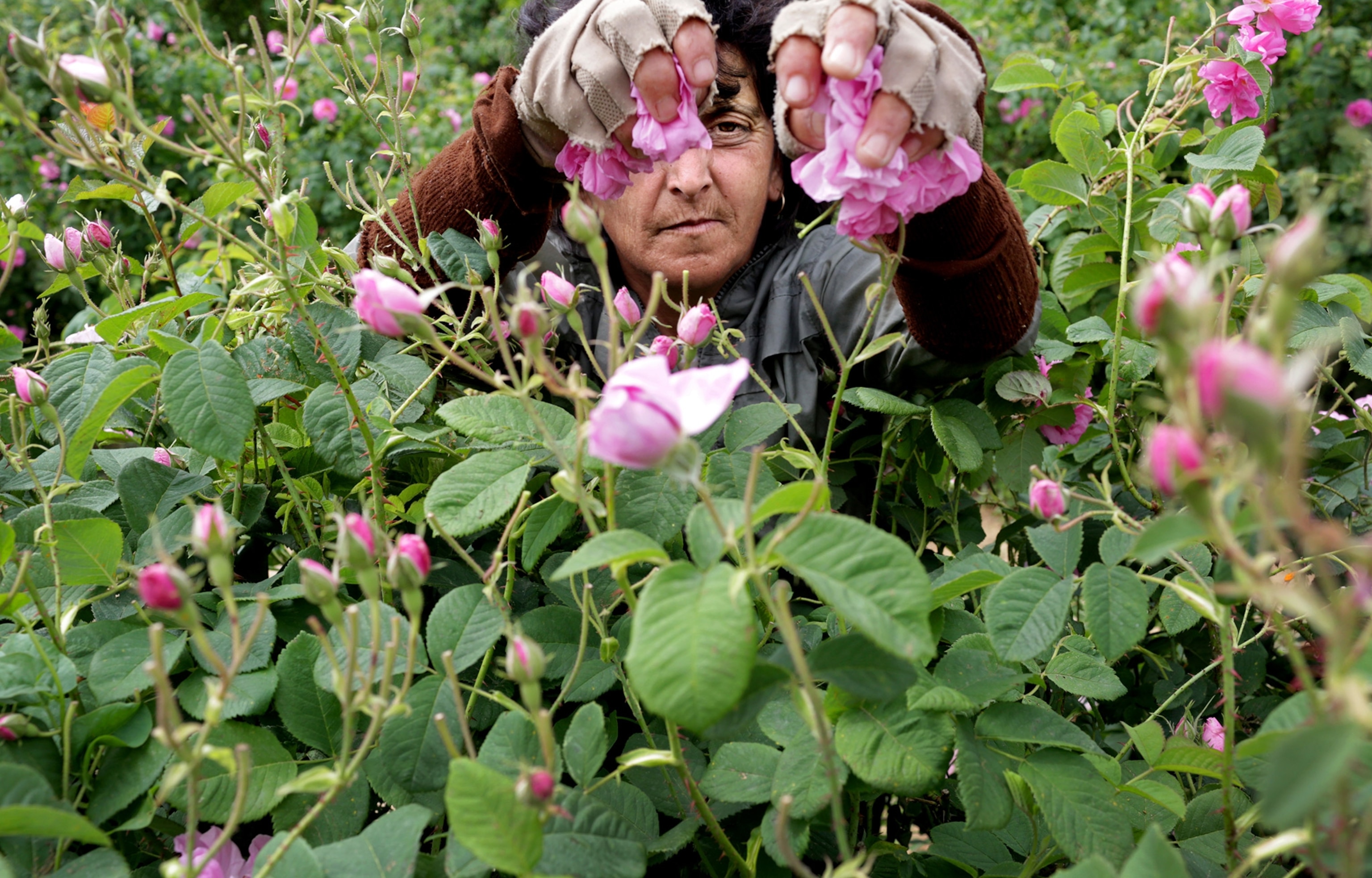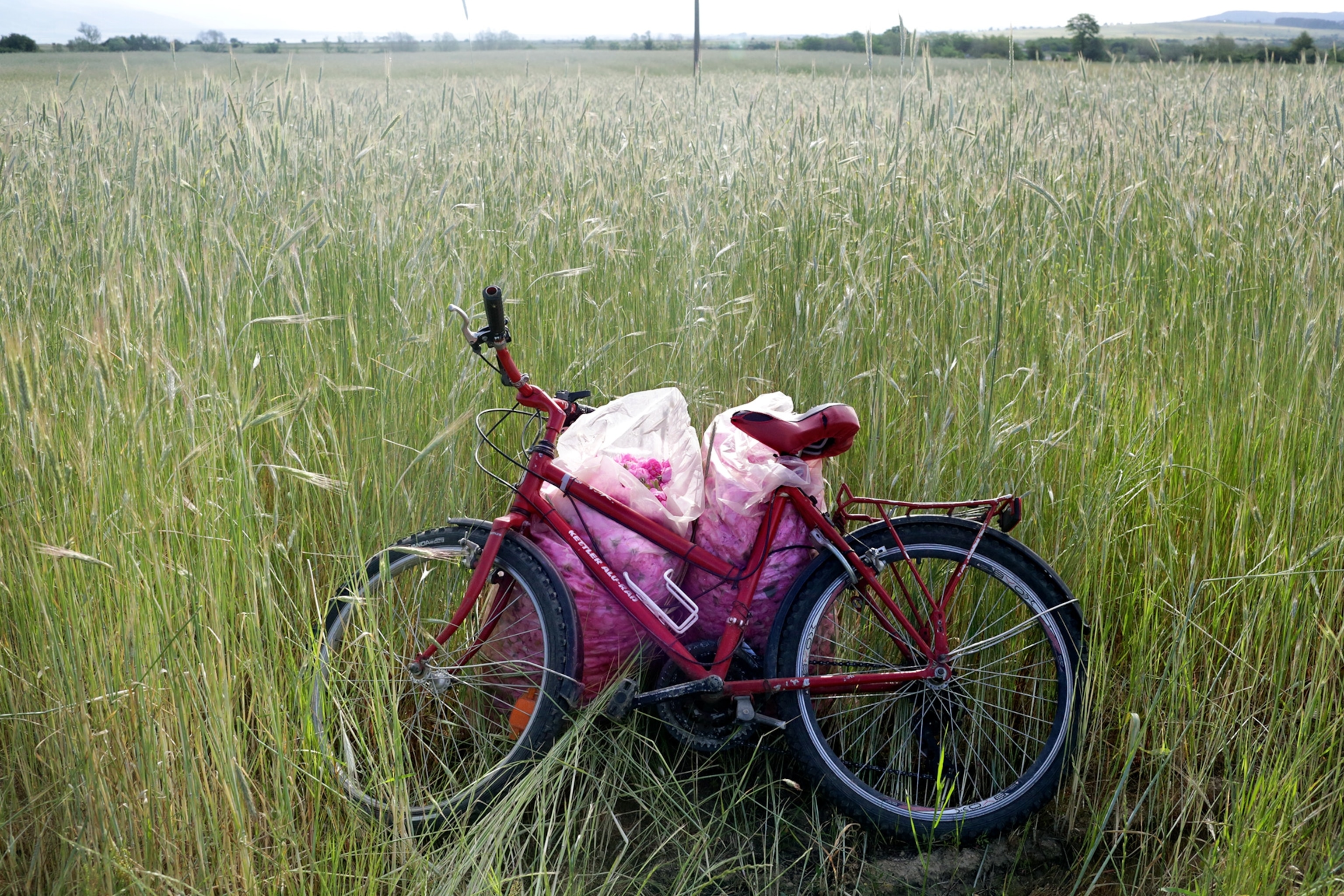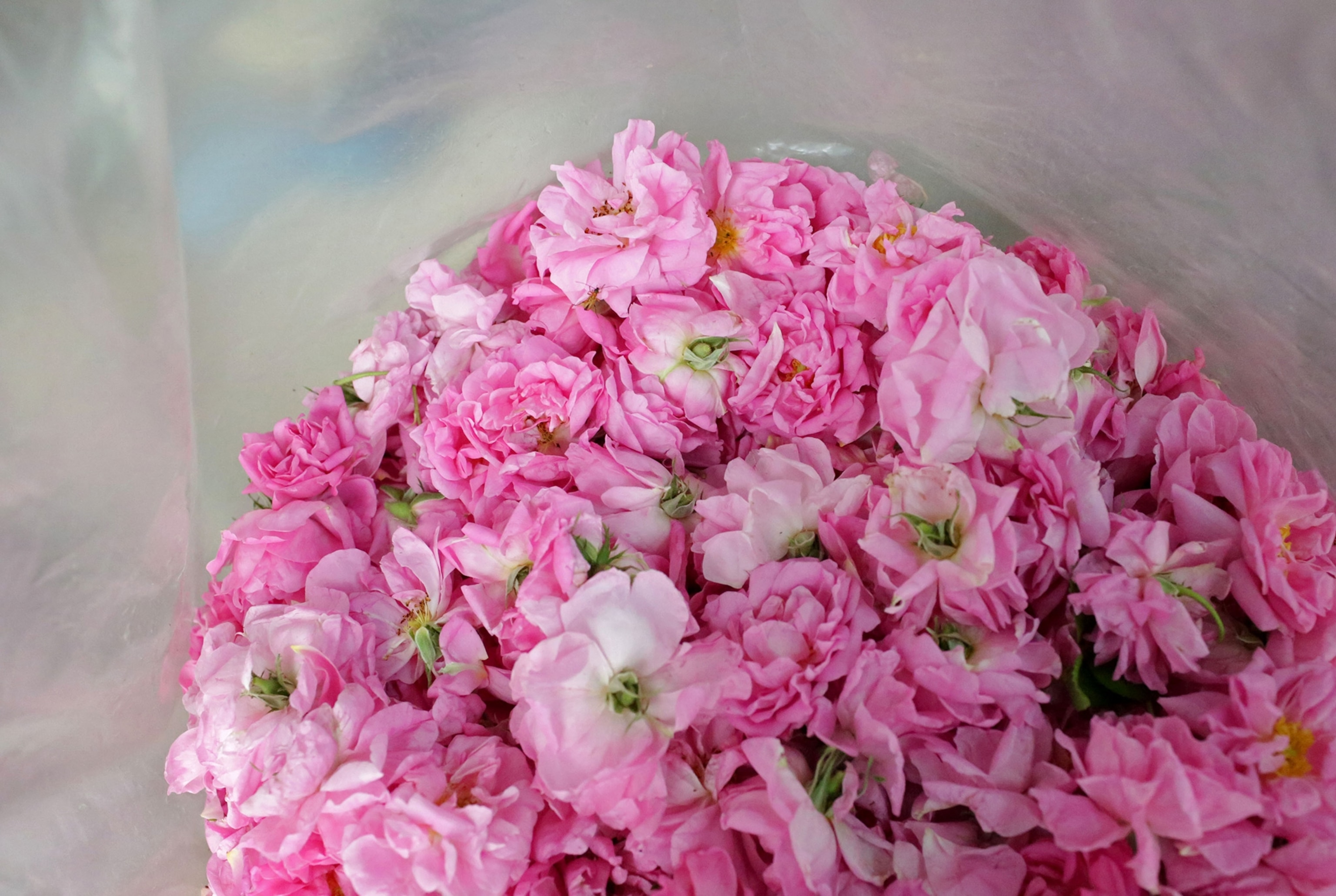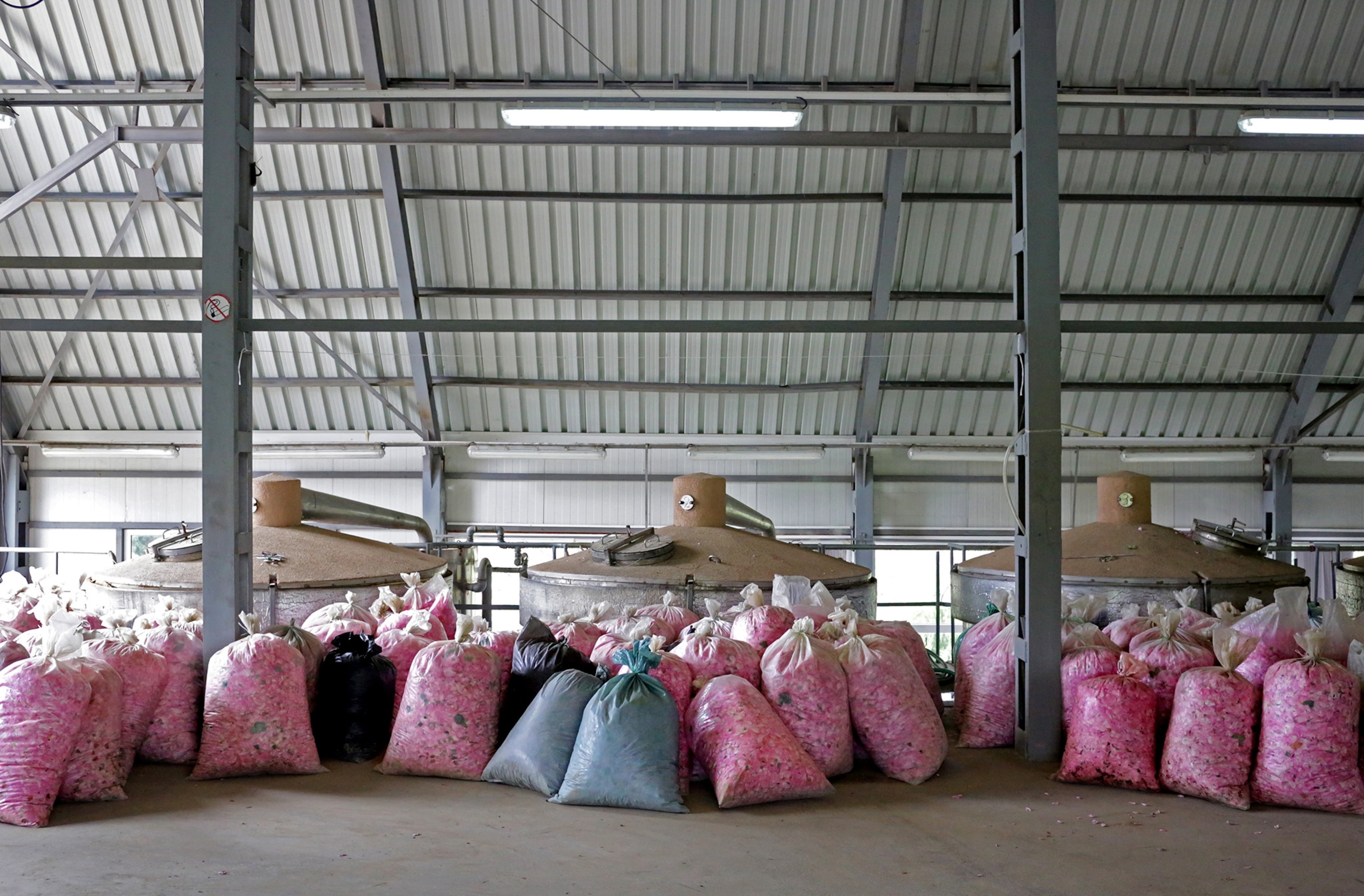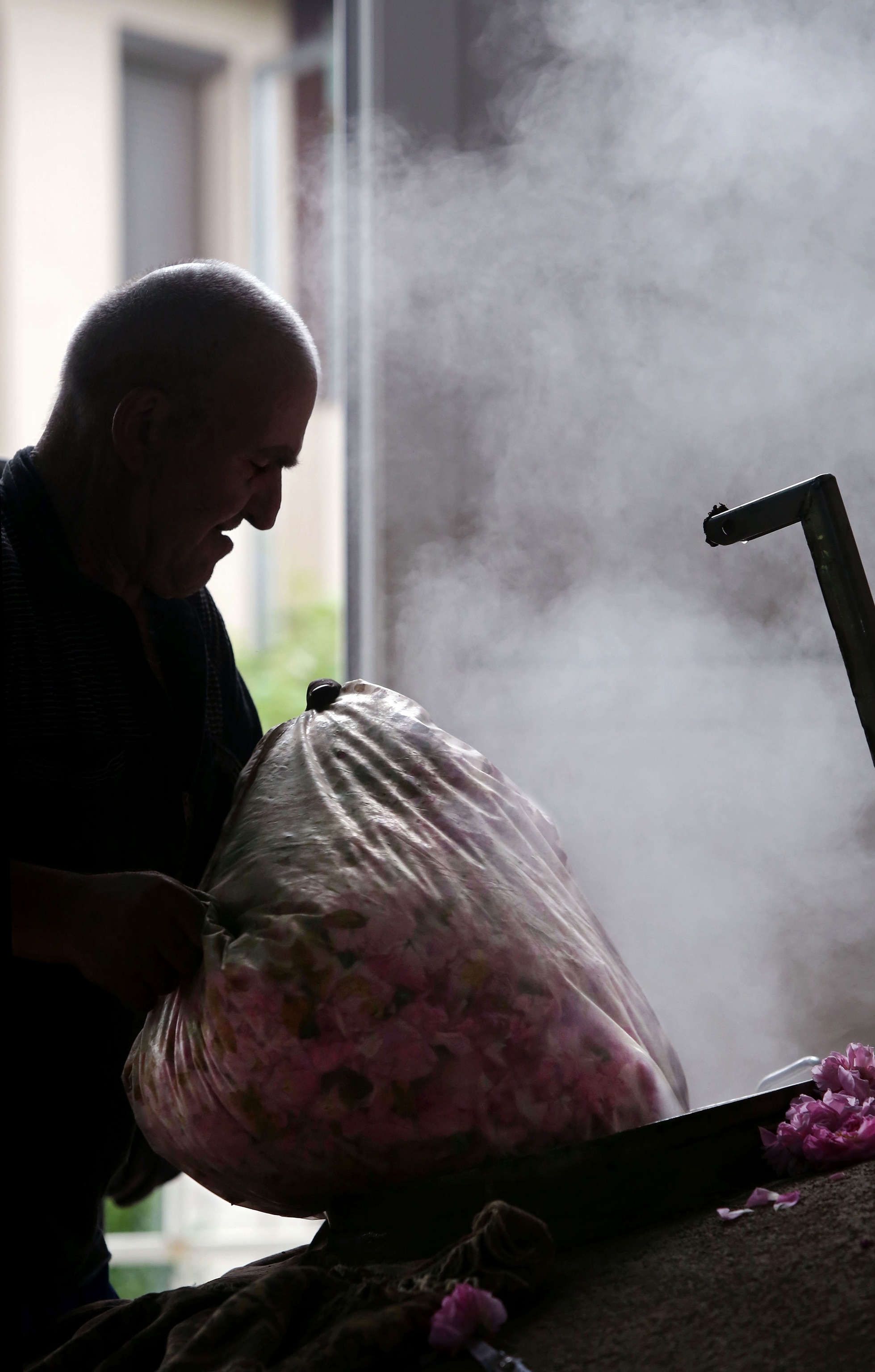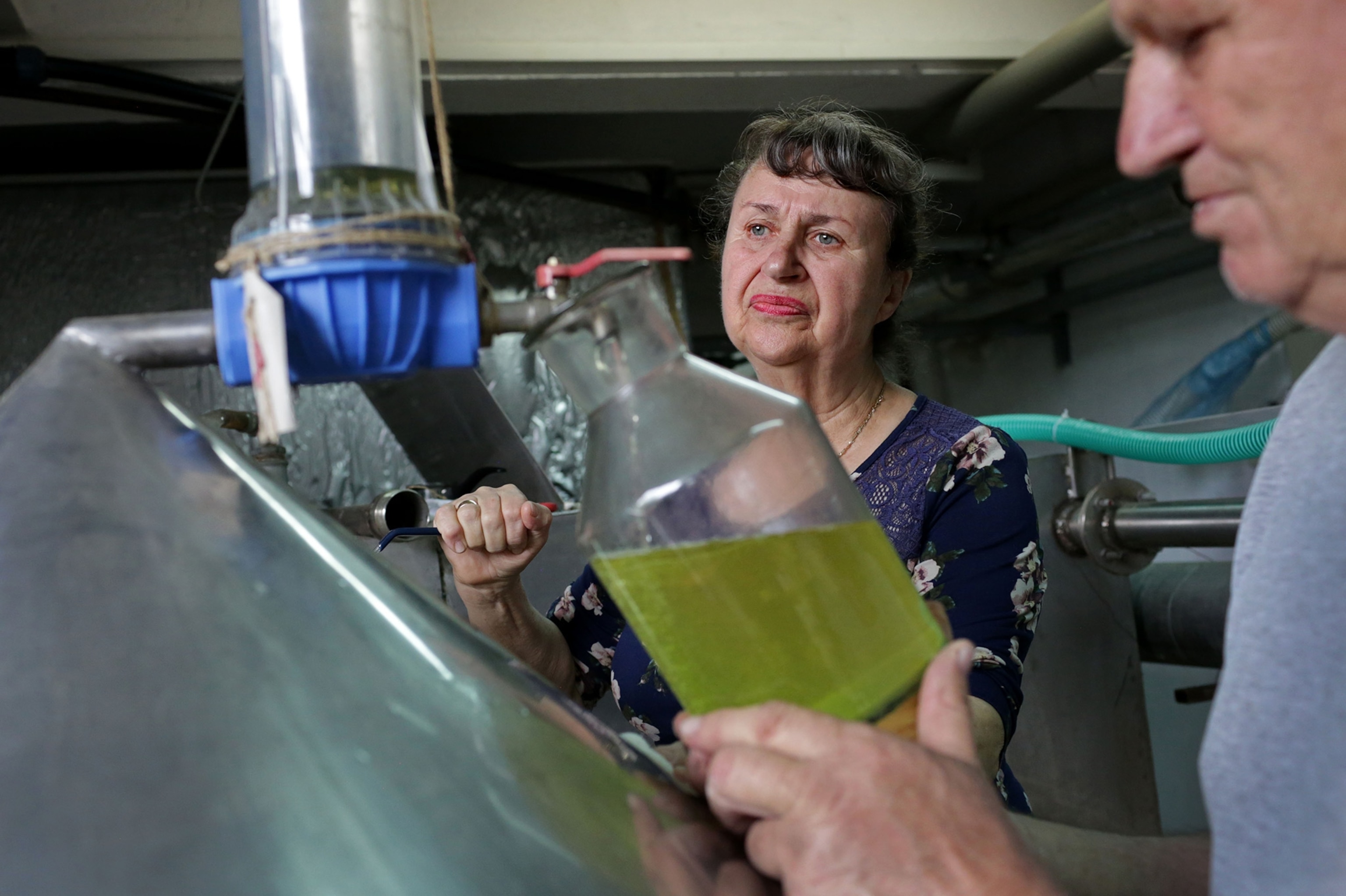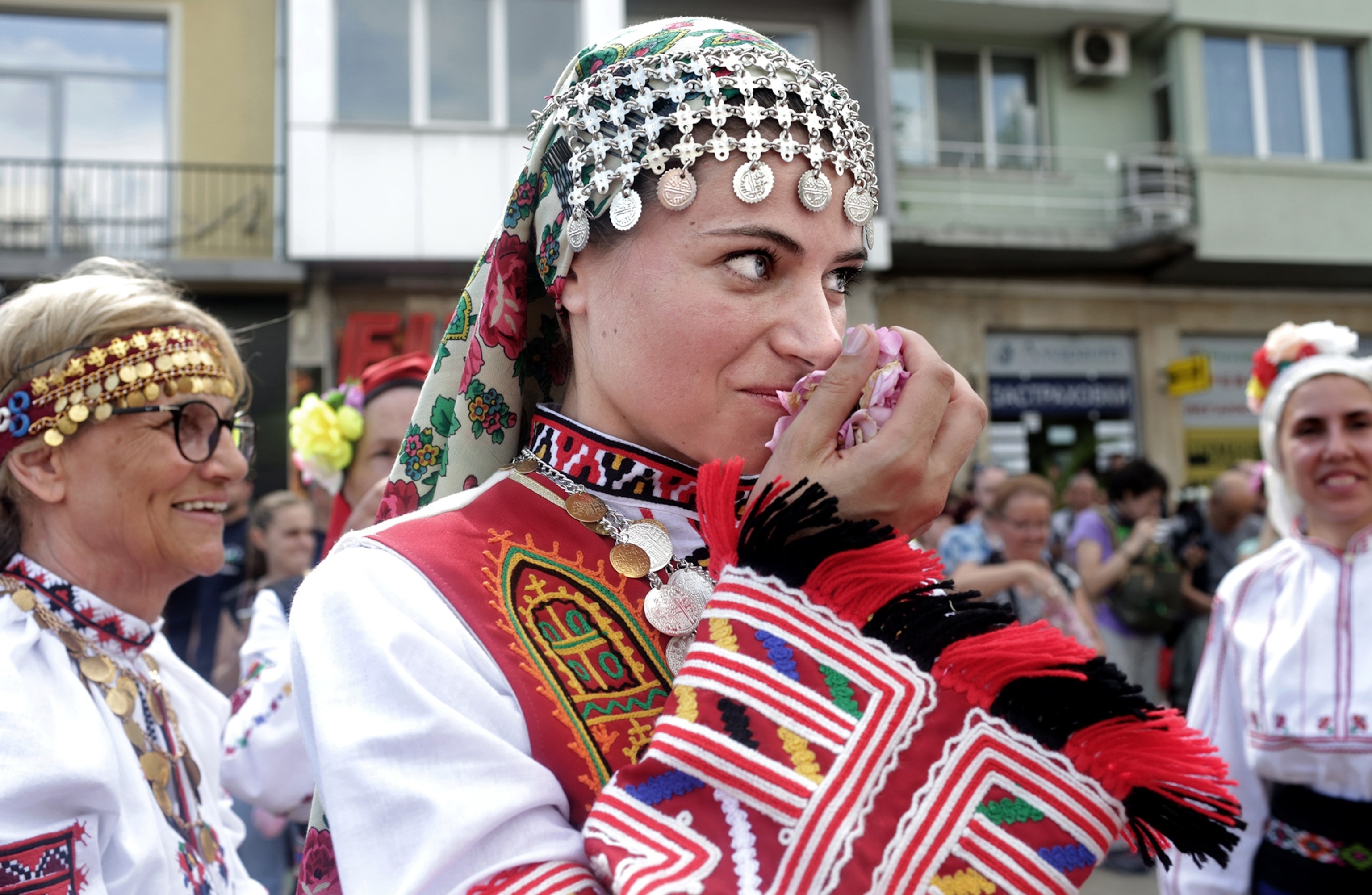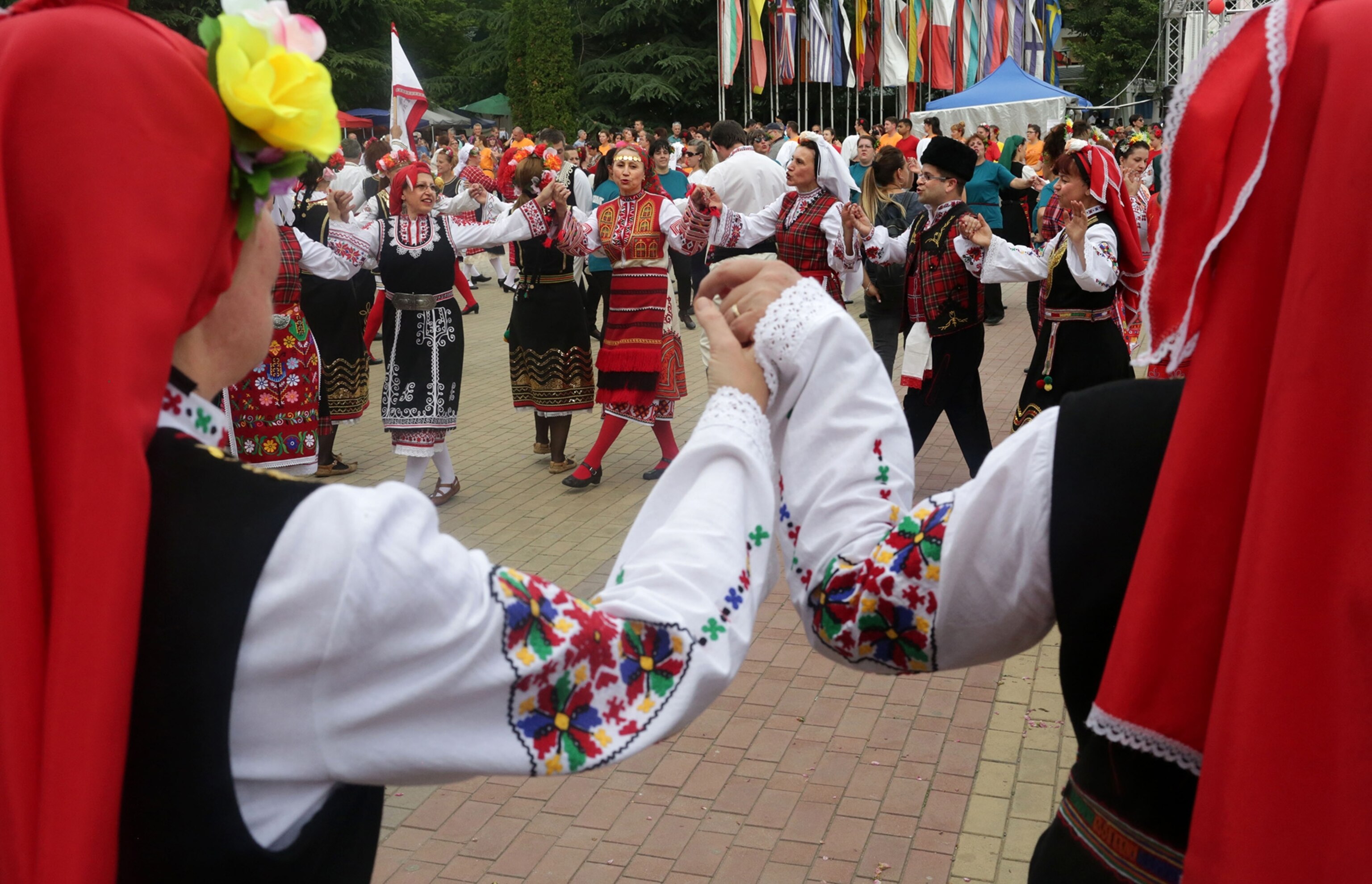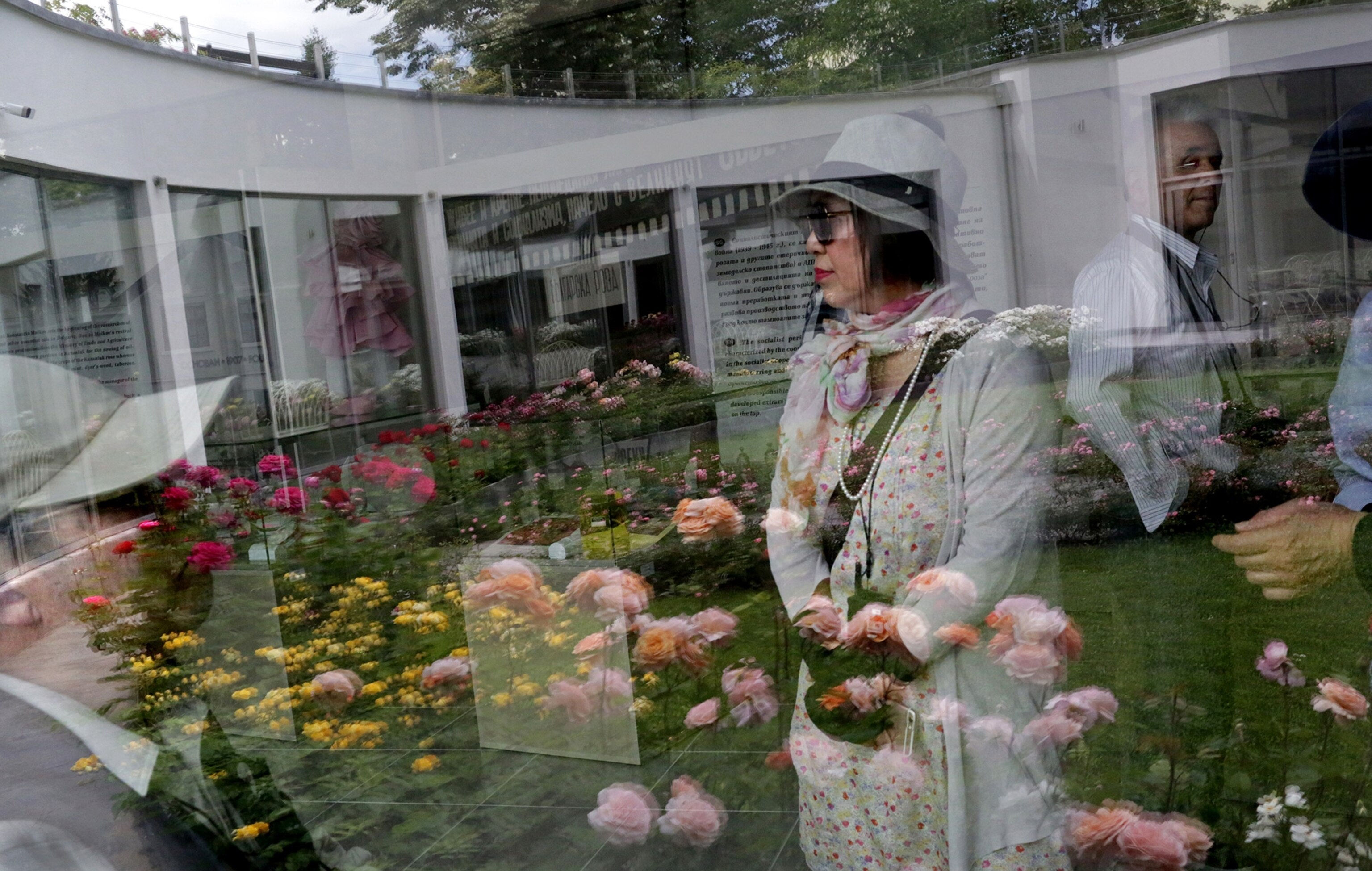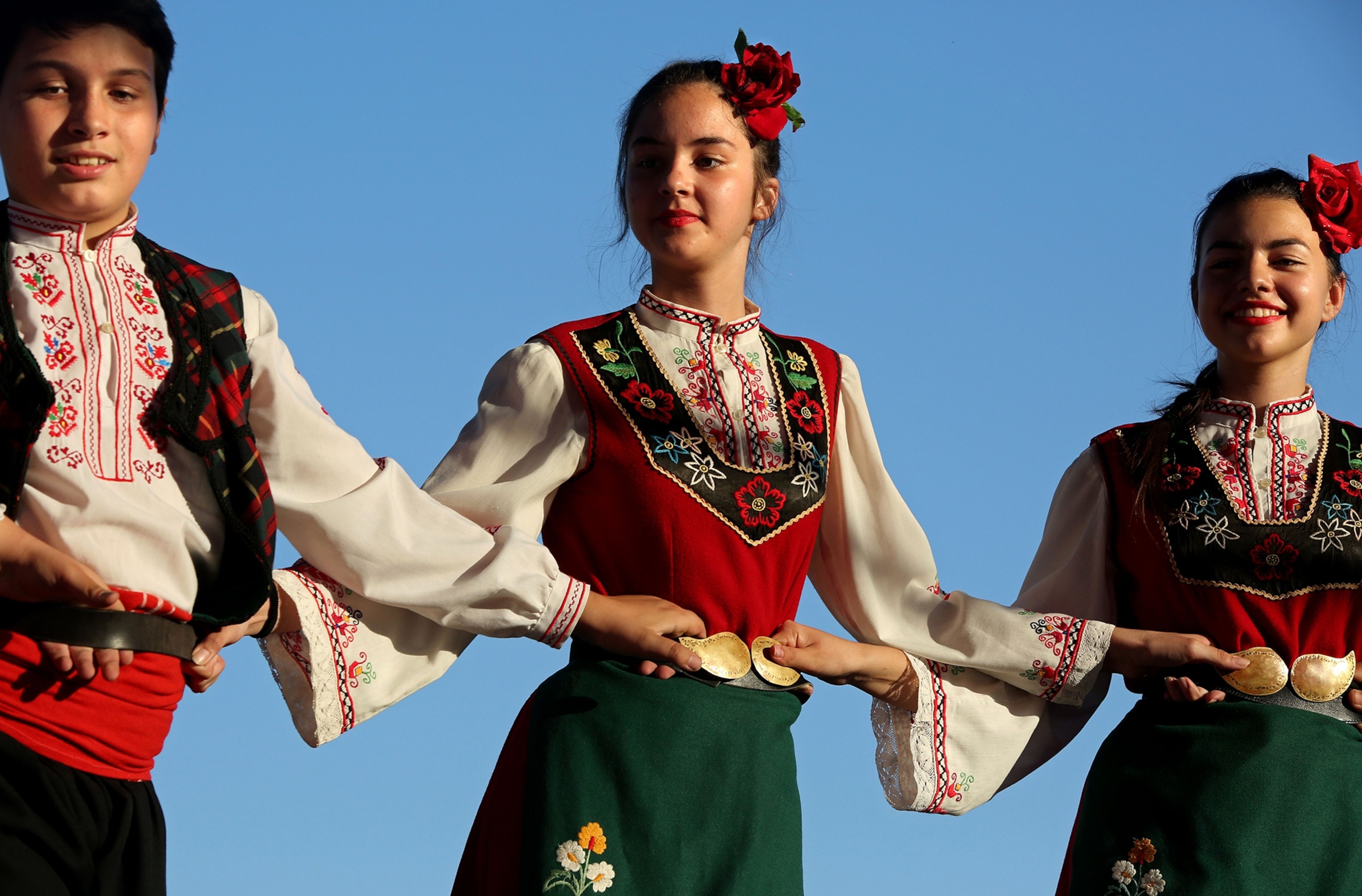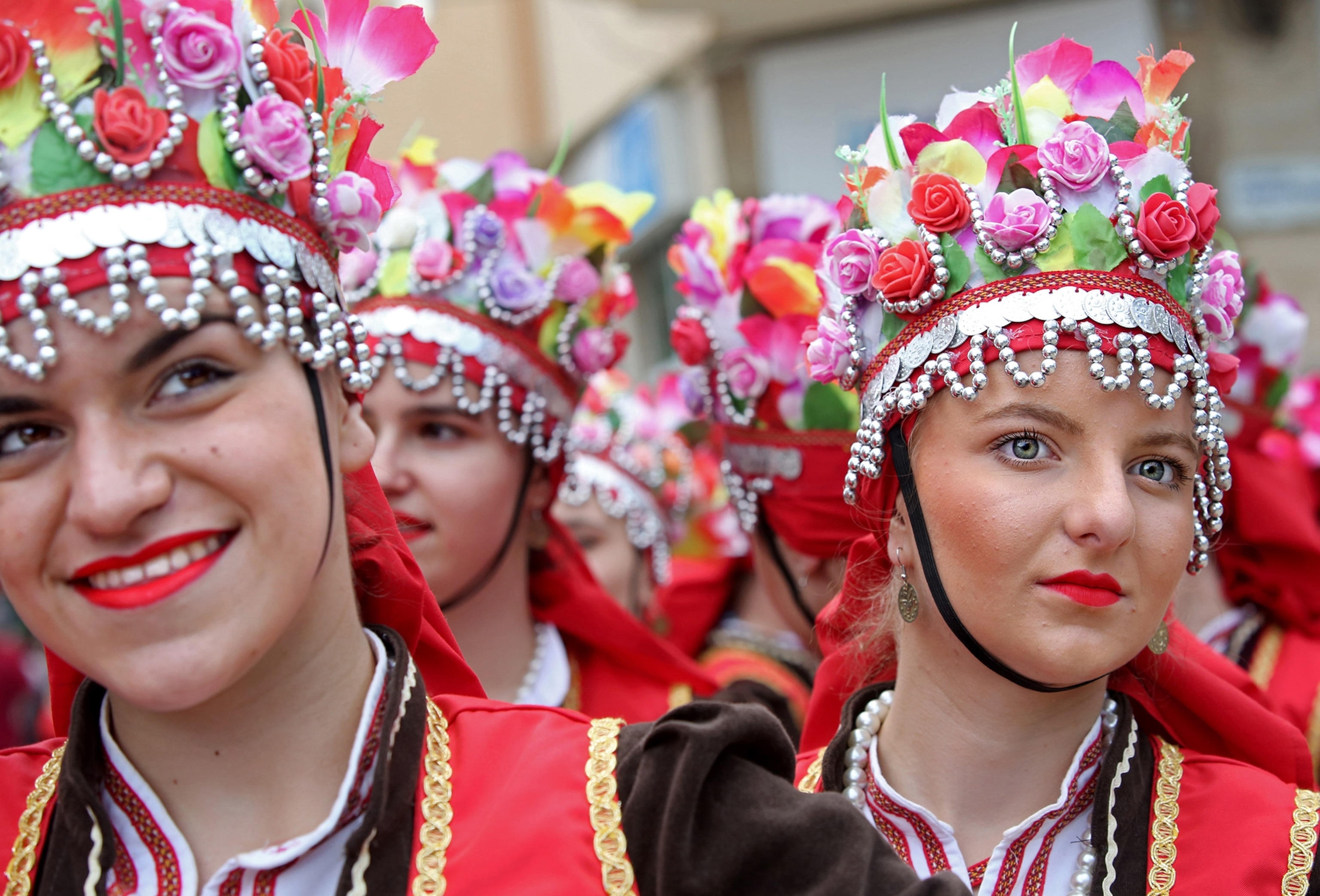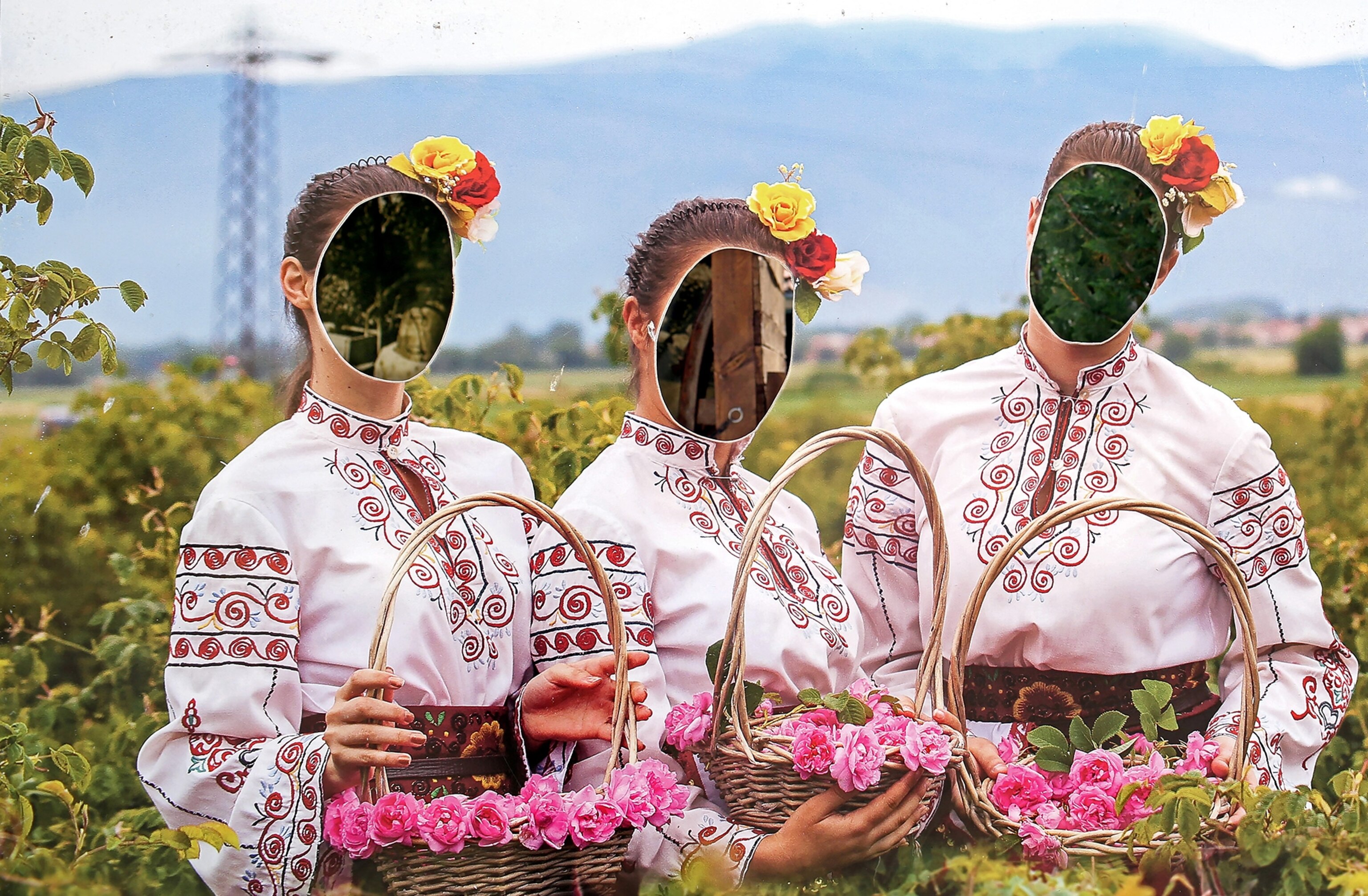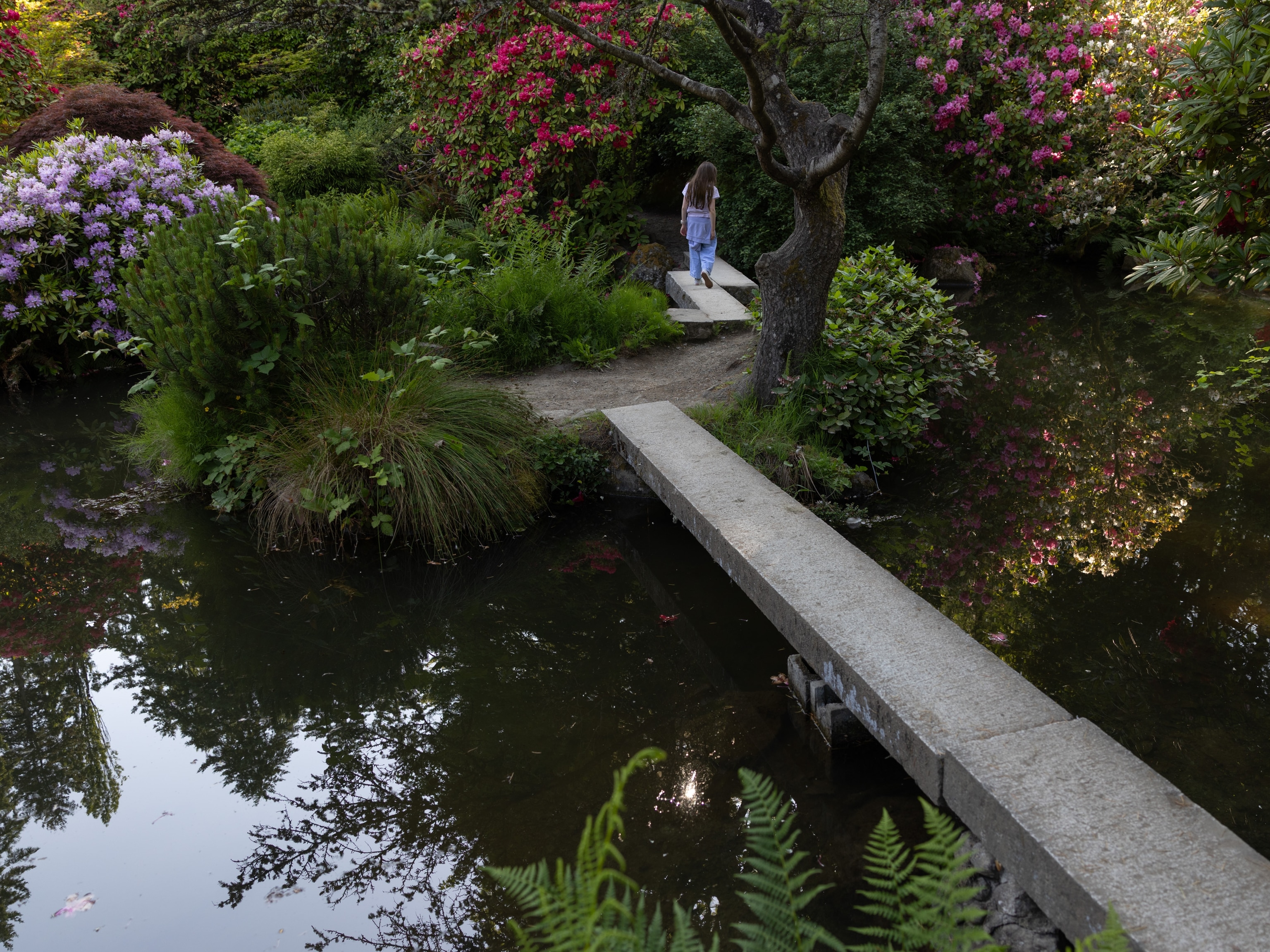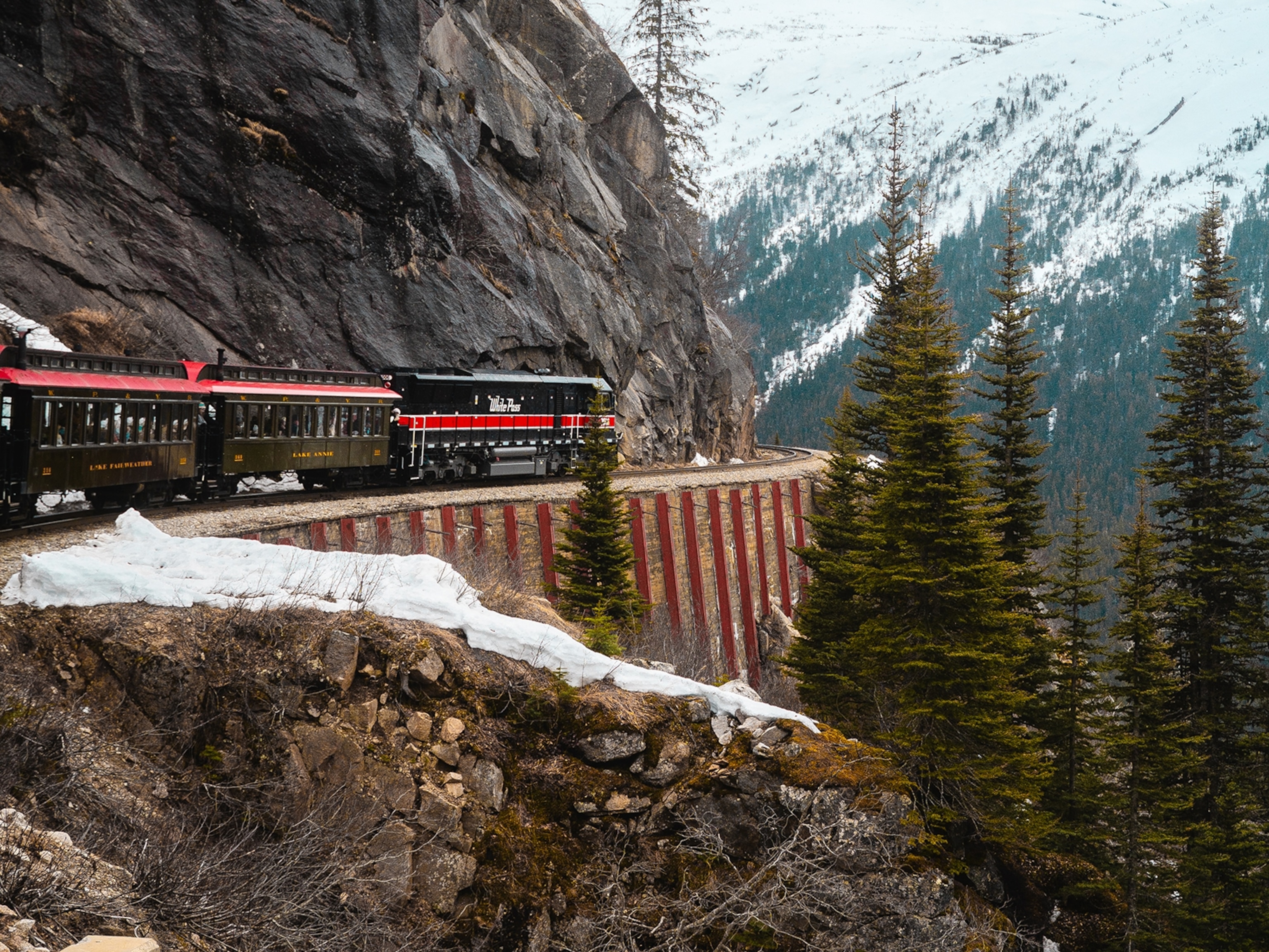Bulgaria’s Rose Valley stretches for about 87 miles across a narrow interval between the Balkan mountain range, dressing up in pink every May and June. Once known for making pistols, ammunition, and automatic weapons under Communism, now the region is famous as one of the world’s biggest sources of an oil likened to “liquid gold.” Rose oil earned the nickname for a reason: It takes more than 3,180 pounds of roses to produce just one pound of rose oil, valued between 3,468 and 6,000 dollars. Today the roses’ edible, highly fragrant flowers are idolized as Bulgaria’s national symbol of pride, but economic pressures and changing climate make their future unclear.
The most common oil-bearing rose found in the valley is the pink-petaled Damask rose (Rosa damascena Mill). The exact birthplace remains unknown: Many accounts trace it to Syria’s capital Damascus, while others reference ancient Persia in Iran. In the 17th century, a Turkish merchant brought the flower to Bulgaria, where it’s now unofficially called Rosa kazanlika, in honor of its breeding ground.
The town Kazanlak is regarded as the heart of the Rose Valley, holding a rose festival the first weekend of June. Visitors see traditional rose-picking, the distillation process, folk dances, and roses ensconced in cakes, soaps, jewelry, wine, and rakia (a strong regional fruit brandy). There’s even a parade to honor a Rose Queen, picked from a pool of high school graduates. [See surreal pictures of Bulgaria’s masked kukeri dancers warding off evil spirits.]
The difficult cultivation of the flower is cause for celebration. For Tihomir Tachev and Aleksandrina Aleksandrova, like many rose producers, working their 4.5 acres of roses in Buzovgrad becomes a long, complicated, and expensive process. Planting the cuttings begins in autumn when the soil is ready. Efforts continue into the year with persistent fertilizing, tractor work, dry branch removal, and insect and weed removal, which proves costly. Finally, the rose-picking season arrives in May and June.
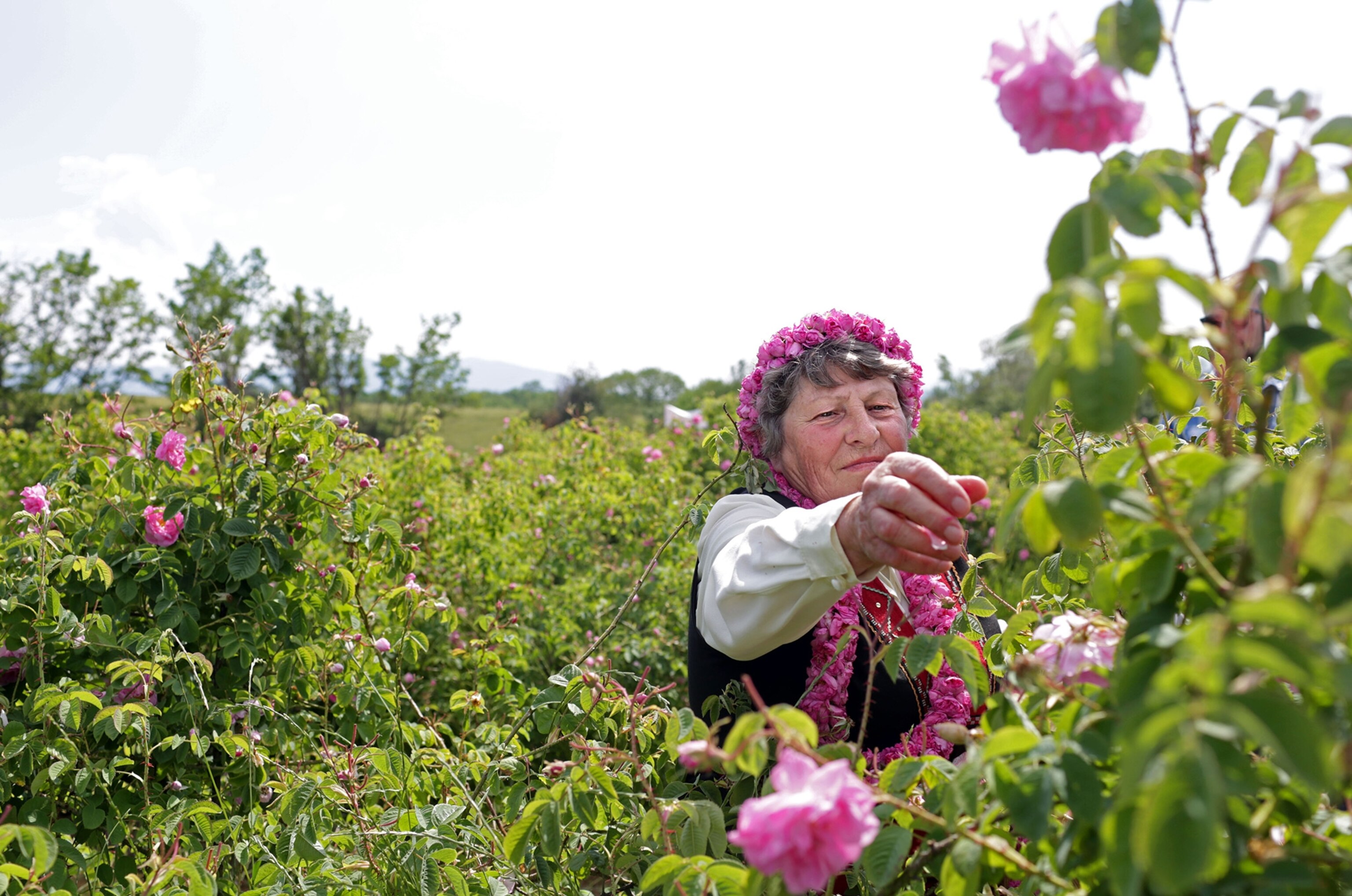
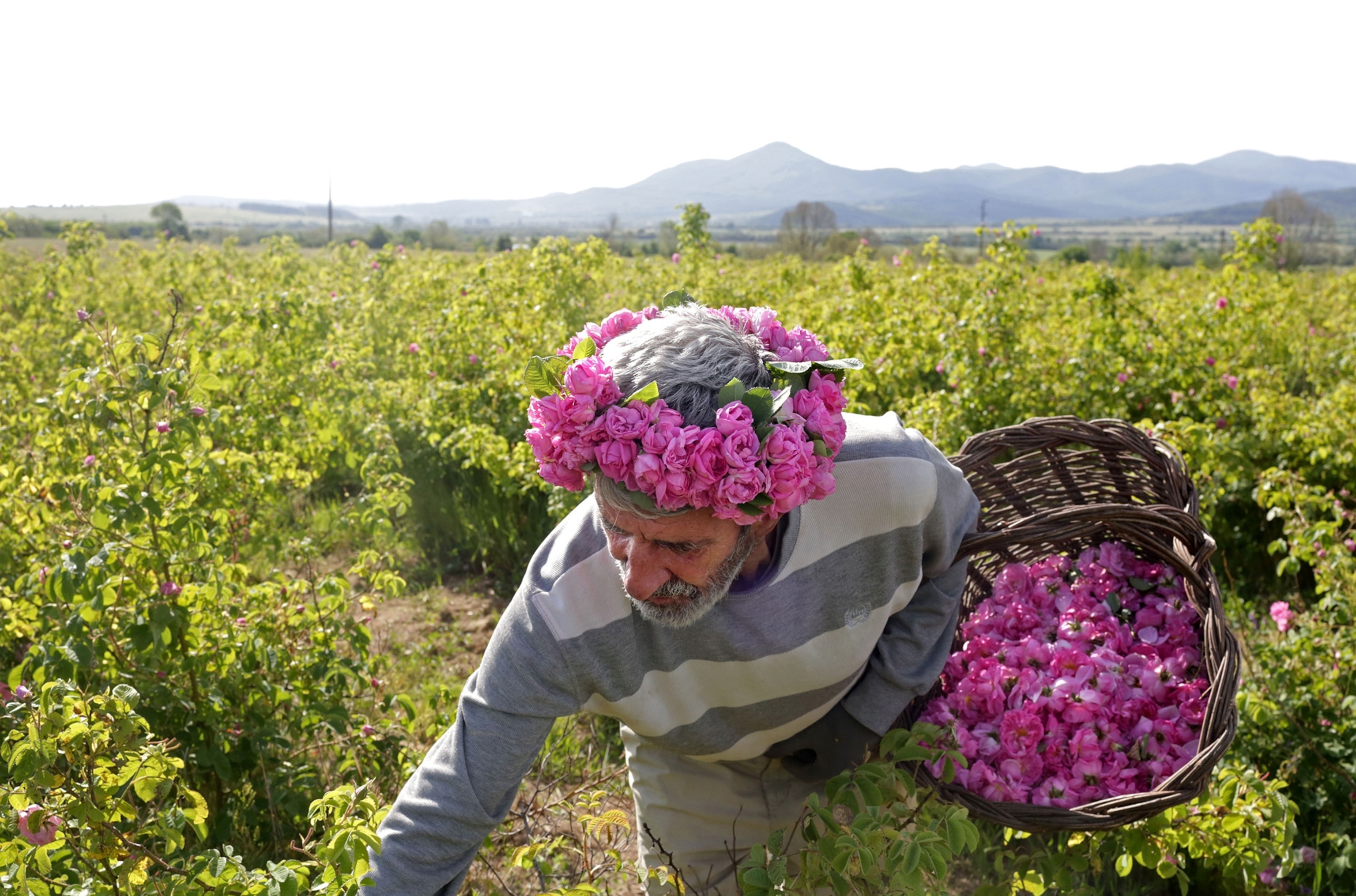
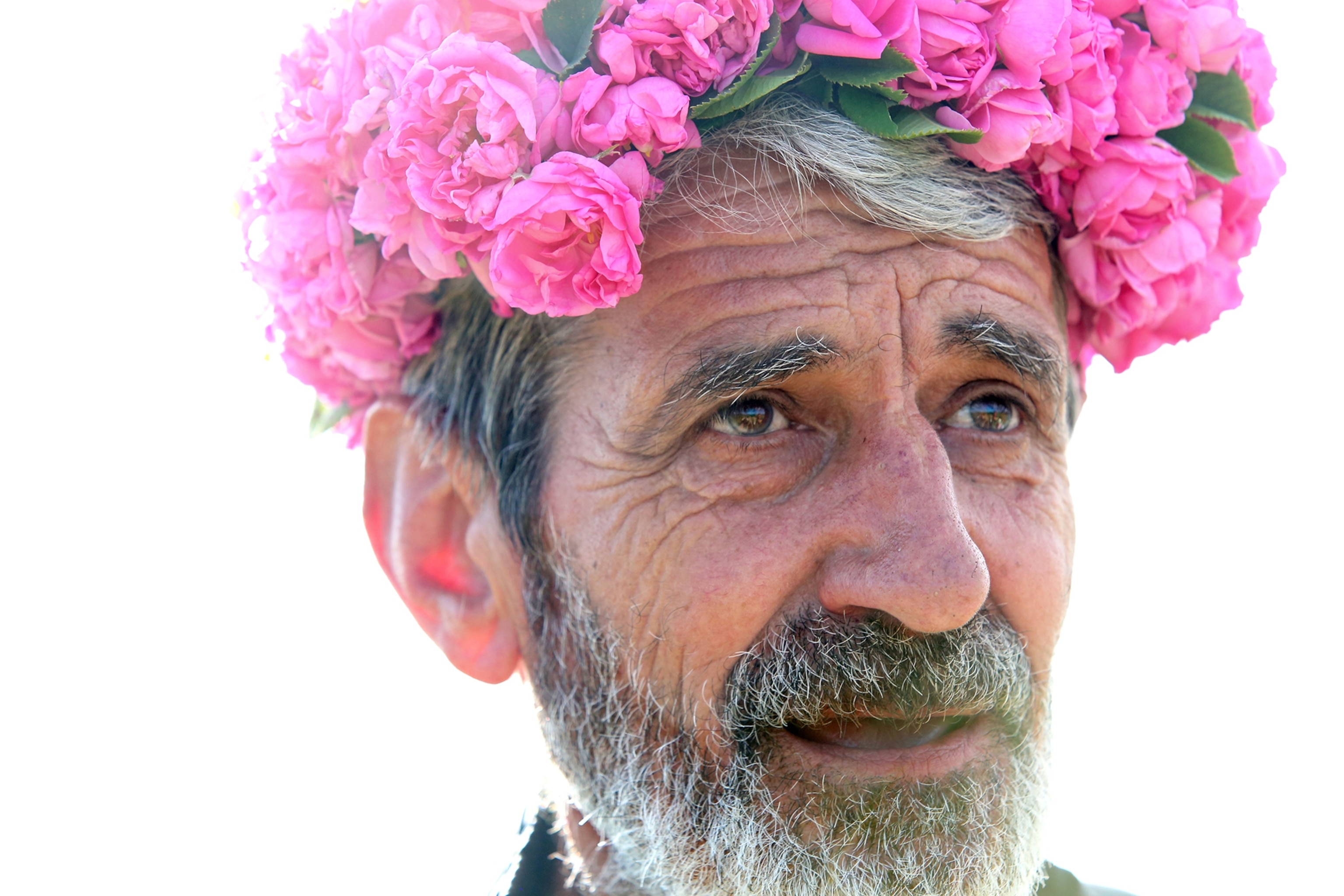
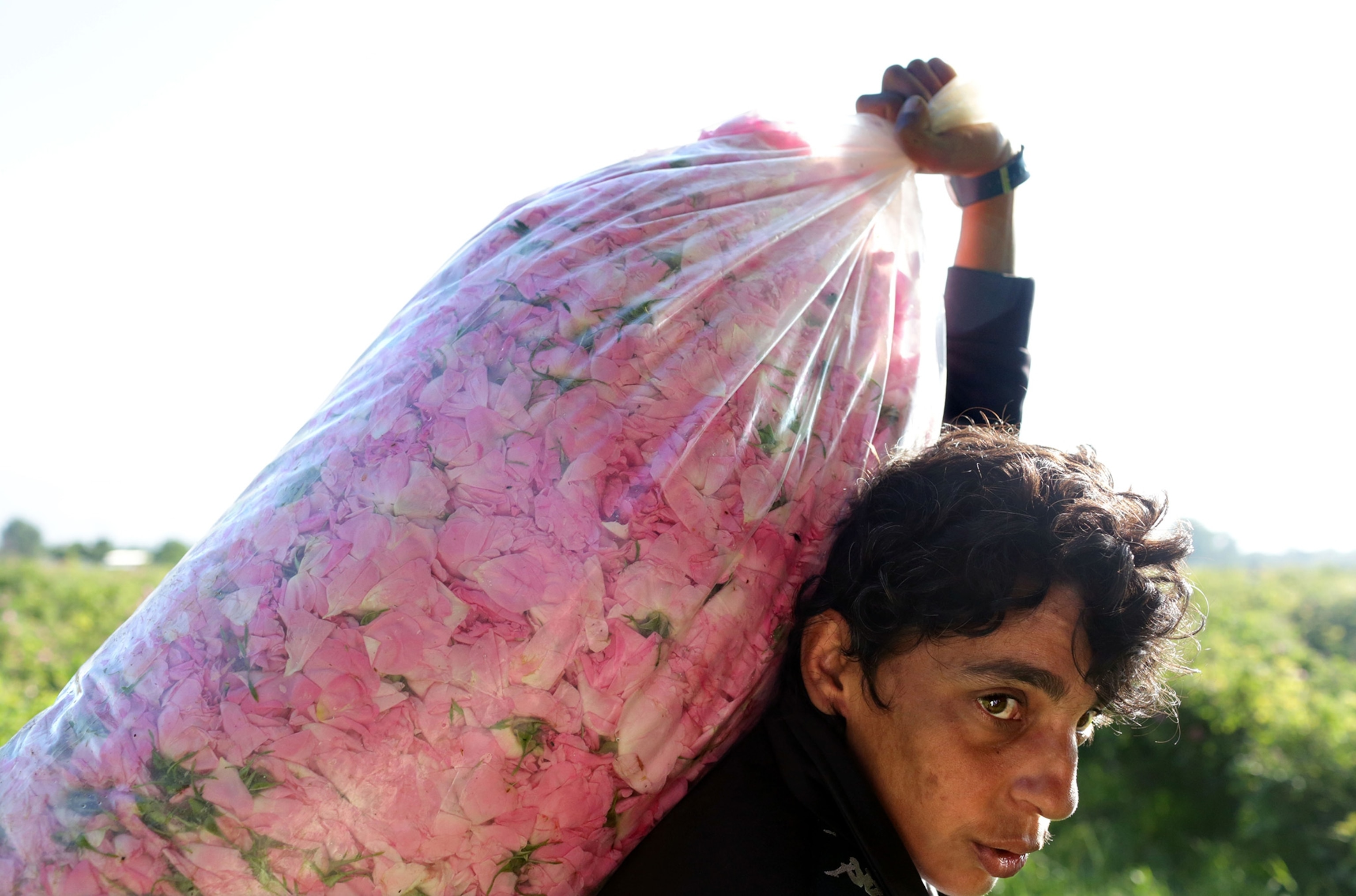
Many rose producers, like Tihomir Tachev and Aleksandrina Aleksandrova, joined together from across Bulgaria's Rose Valley to dump out entire bags of flowers on the highways in protest of low purchase prices by the distilleries processing rose oil. Eagerly sought by cosmetics and fragrance producers such as Dr. Hauschka and Estée Lauder, the oil remains highly priced. Meanwhile, the flower prices have fallen to barely cover production and labor costs.

Distilleries describe an oversaturated market, with more rose gardens popping up each year, but farmers remain suspicious that the distilleries have colluded to lower the purchase price of roses. Many locals say they'd like the government to regulate the entire chain between producers and processors–and even set a contractual minimum purchase price. But since the 1989 fall of Communism, Bulgaria's market economy has been ruled not by the government but instead by supply and demand.
Yet neither the rose producer and or distiller can control the weather. Roses like sandy, permeable, clay-free soil, and a clear, sunny climate with mild winters and enough humidity during the flowering period. These are just the conditions found in Bulgaria’s Rose Valley, with two rivers and mountains shielding against atmospheric volatility. The area is usually sunny but cool before noon, with hotter, sometimes rainy afternoons. These temperature amplitudes during the flowering period provoke the production of rose oil, which the plant forms as a defense reaction. [Visit the eerie, spaceship-like monument in the Balkan Mountains.]
However, under unfavorable climate conditions–like temperatures that climb above the norm, or rainfall that dips below it–flowers could bloom faster and all at once, without allowing the usual benefit of a slower, more gradual blossoming across varying altitudes. This change could reduce the usual three-week rose-harvesting window, and producers feel more pressure to act quickly.

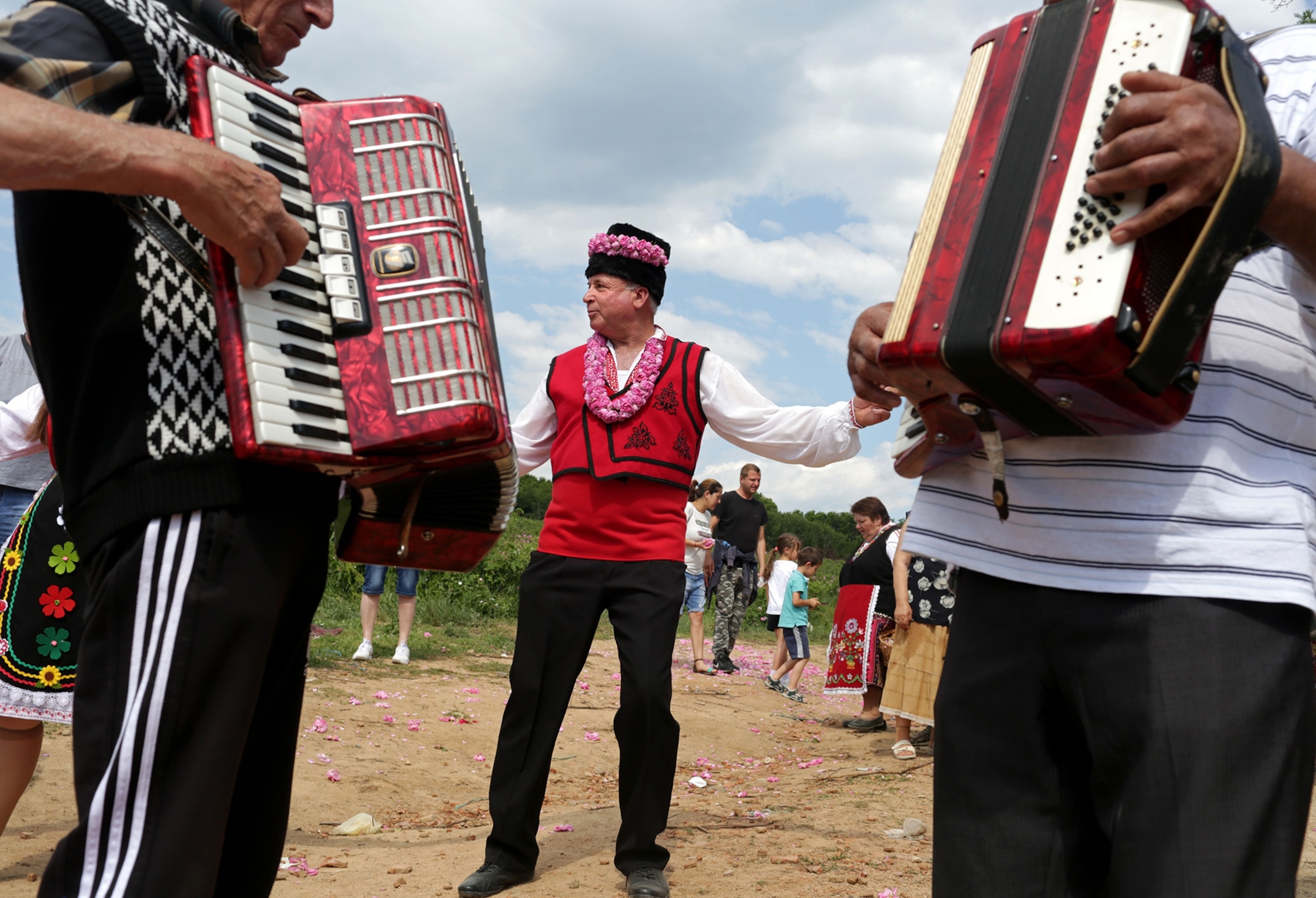
Krastina Malcheva, assistant engineer at the National Institute of Meteorology and Hydrology, explains that even small shifts in the valley’s climate could impact rose production. “There has been a general trend of rising temperatures in June and while there has been more heavy rainfall in May over the past 15 years, if examining the entirety of last century’s data, we see a slight overall decrease in rainfall alongside a rise in temperatures.”
- National Geographic Expeditions
This year’s rose-picking season was a full week shorter for Tachev and Aleksandrova, who suspect the drier, hotter conditions stimulated faster blooming.“We have to [work] faster, with more laborers, and there aren’t more laborers because everyone has roses to pick,” says Aleksandrova. “So we just end up picking roses until a later hour than we should, when the rose oil has started to evaporate from the flower.”
Both rose farmers and rose-pickers are concerned about the sustainability of their product, but it’s difficult to picture the Rose Valley–or Bulgaria as a whole–without these roses that symbolize its national identity. In Kazanlak alone, a rose is an untouchable brand: appearing on passersby’s clothes and jewelry, inspiring names of museums and hotels, flashing as a tattoo on a rose-picker’s arm, or decorating pastries in the town’s market. And of course, a combustion of color is seen throughout proud gardens in bold proliferation.
“Cultivating roses is a tough, big fight,” Tachev says of the delicate process. “Agriculture is a laboratory under the sky, right? It’s open to you, but it’s not all up to you. My grandmother used to say until you pick it, it isn’t yours. One hailstorm and it’s gone.”



